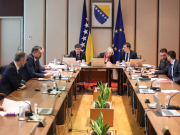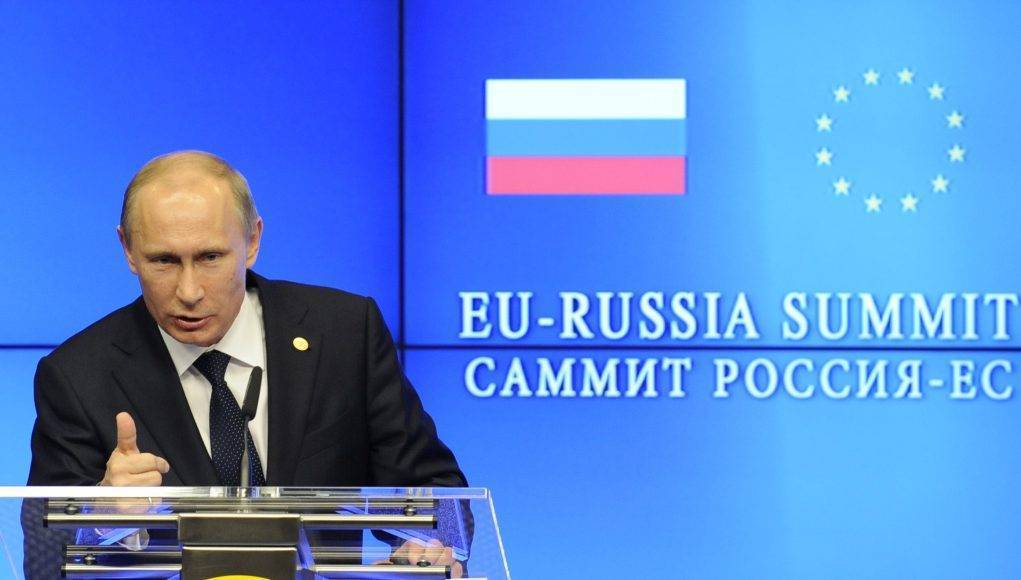Military failure in Ukraine is undermining the stability and survival of the Russian state. The Kremlin has tried to disguise its war losses to prevent negative domestic reactions, but the reality of failure is becoming increasingly clear, most recently in the retreat from Kherson soon after the region was illegally incorporated in the Russian Federation. Russia’s convulsions are evident in high-level criticisms of state policy, purges in the military, political, and economic structures, conflicts within the security institutions, public resistance to mobilization, and mounting regional unrest.
Russia’ s military lost the battles for Kyiv, Kharkhiv, and Kherson, and continues to lose ground in other occupied territories. Some military experts estimate that Donbas and even Crimea will be liberated over the coming months. Moscow’s war losses are enormous, with a conservative estimate of over 100,000 dead, incapacitated, or captured, together with several thousand destroyed or captured aircraft, tanks, and other heavy equipment. These staggering losses have seriously depleted Russia’s military capabilities and decimated elite units.
Internal Russian criticisms about the planning and conduct of the war have mushroomed despite strict state censorship. The Military Review website, which is close to the Russian Ministry of Defense, has published devastating attacks on the condition of Russia’s armed forces. Even senior former military commanders have lambasted the operation. Retired General Leonid Ivachov, a prestigious figure in the Soviet General Staff, has denounced the policy of deploying various private formations alongside the regular army. Ivashov even stated that “Russia will cease to exist” if it continues the war by becoming increasingly isolated and destitute.
Igor Girkin, the former “Minister of Defense” of the Moscow-created Donetsk People's Republic in occupied Ukraine, has asserted that a classic revolutionary situation is brewing inside Russia. Moscow is waging an increasingly unpopular imperialist war, the battle front is collapsing, and the country’s leaders are disconnected from reality. According to Girkin, Putin is kept in power to prevent elite battles that would precipitate Russia’s disintegration. Such criticisms have been amplified by hardline military bloggers who openly attack Russian commanders for their mediocrity, ineptitude, and cowardice.
There is frequent reshuffling of the Russian command structure and a constant purge of senior officers blamed for a poorly designed war strategy. Alongside the military purges there has been a spate of suspicious deaths among oligarchs and critics of the Kremlin. At least a dozen Russian oligarchs have died in unexplained circumstances, leading to speculations whether they were opposed to the war and willing to support alternative leaders or whether they committed suicide because of economic losses due to international sanctions. They have included Ravil Maganov, chairman of the board of Russia's largest private oil company Lukoil, one of a few Russian companies to criticize the invasion of Ukraine.
Disputes between security institutions have intensified. Yevgeniy Prigozhin, who controls the Wagner paramilitary group, has lambasted Russia’s military commanders and Defense Minister Sergei Shoygu and Chief of the General Staff Valery Gerasimov for their failures. Wagner has sustained significant losses in Ukraine and has recruited convicts in Russian prisons in return foramnesty. Chechen Republic leader and Putin loyalist Ramzan Kadyrov has also openly attacked Russia’s military leaders for incompetence and lack of commitment. Kadyrov's and Prigozhin’s critiques indicate a deepening fragmentation among the pro-war leaders. Firefights between the regular military and private contractors have also erupted. In the midst of massive losses, logistical shortages, and retreats such internal conflicts can precipitate outright military mutinies. At the same time, underground resistance movements have become active inside Russia and engage in regular sabotage operations against recruitment centers and the military infrastructure.
Leonid Gozman, president of the all-Russian public movement Union of Right Forces, has warned that Russia’s regime faces collapse in which the country can descend into chaos and potential civil war. A rapid disintegration would result in clashes between various military formations including Kadyrovtsy, Wagnerites, ambitious generals, and regional governors. Gozman believes that the level of violence and bloodshed could become “apocalyptic.”
Russia's first mass mobilization since World War Two has provoked widespread discontent. The Kremlin confronts a spreading anti-mobilization movement among families of citizens sent to Ukraine without sufficient military training or equipment. The Council of Mothers and Wives, a grassroots anti-war movement reminiscent of the popular movement during Russia’s war in Afghanistan, has claimed that Putin is too fearful to meet with them and is hiding from the public.
Almost a million men have fled the country to avoid mobilization, and several thousand were arrested at anti-war protests in more than fifty cities. Most of the protests were held in non-Russian areas and in poorer Russian regions. The largest flashpoints were recorded in the republics of Dagestan, Buryatia, and Sakha. Men who were enlisted have received minimal training, inadequate weapons, and little food or medical attention, and are led by corrupt commanders. Many have tried to desert and faced imprisonment or execution. The war will have an especially devastating effect on Russia’s regions whose funds are dwindling to pay for the war in Ukraine. The disproportionate mobilization and slaughter of non-Russians is aggravating a litany of grievances in numerous national republics and exploited regions.
Moscow-based opposition activists and exiled democrats are incapable of transforming the Russian empire into a democratic state. Their insistence on preserving Russia in its current borders is viewed with increasing suspicion among non-Russians and regionalists. This leaves the terrain open for alternative voices, particularly for nations and regions demanding independence, including the expanding Forum of Free Nations of Post-Russia. By assembling émigré activists from several nations and regions including the Middle Volga, Siberia, the North Caucasus, and Russia’s Northwest, they are giving voice to long-suppressed aspirations for national and social liberation. Vitriolic Kremlin attacks on such initiatives underscore its intense fear of spreading challenges to Moscow’s rule as Russia faces a grueling winter of defeat in Ukraine.
(Janusz Bugajski is a Senior Fellow at the Jamestown Foundation in Washington DC. His new book, Failed State: A Guide to Russia’s Rupture, has just been published)
































